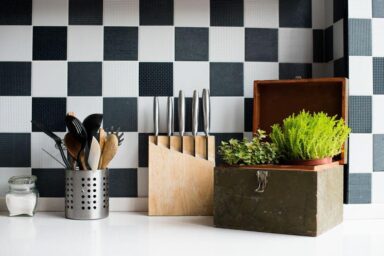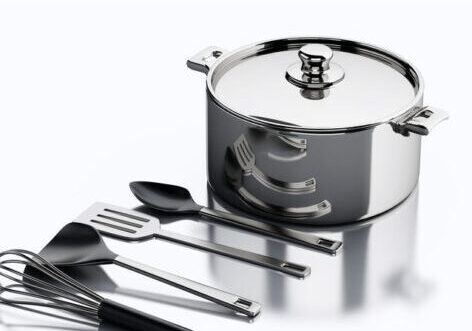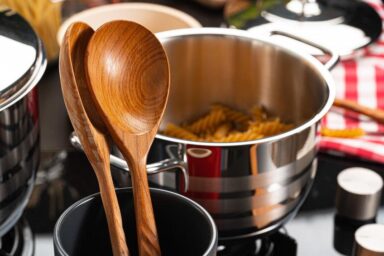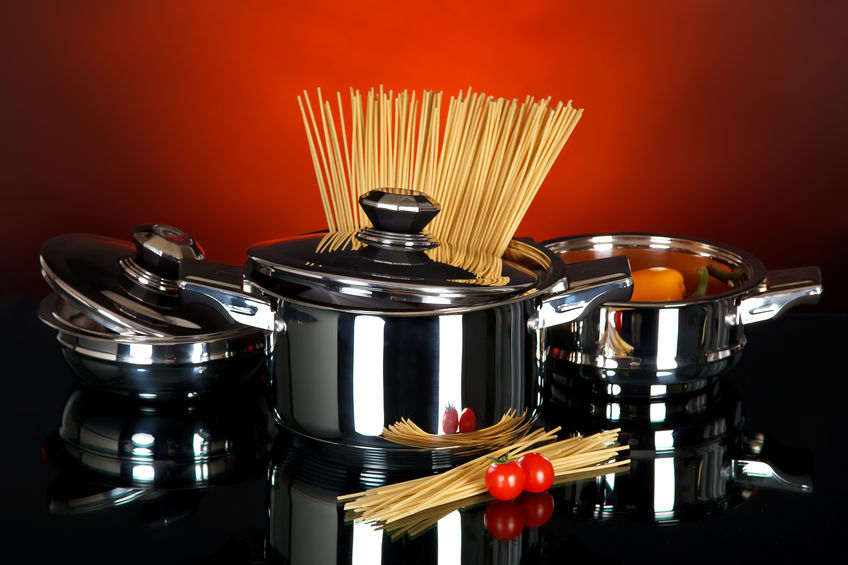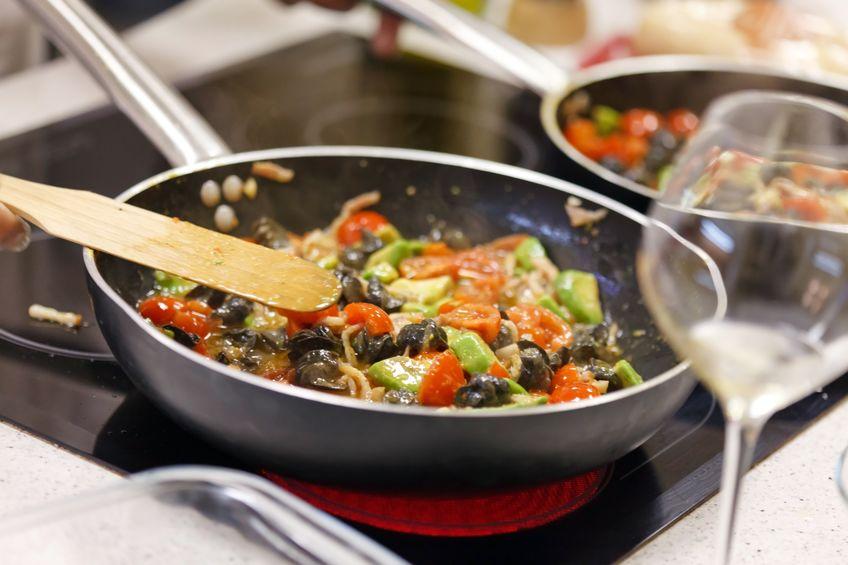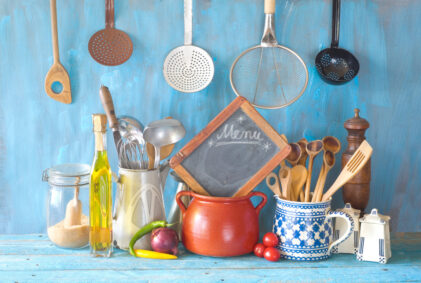

It’s time for new kitchen utensils and you’re starting to explore the market.
But there’s a problem… Between plastic and silicon utensils, wooden utensils, and metal utensils, you aren’t sure which to go for.
All of them have advantages, but there’s no easily discernable winner.
Many people have faced the same challenge. Knowing what is the best material for kitchen utensils is essential to getting the best set for your needs.
You’ll find that ‘best’ is a subjective term, and you should consider each material based on your unique needs.
Let’s break down three common types of utensils and find out which is right for you.
Wooden Kitchen Utensils

A good quality wooden kitchen utensils set is affordable, and you can go right up to premium pricing if you want some utensils that will stand out.
Wooden utensils have been used for countless generations and they’re still incredibly popular today.
This option is perfect for non-stick cookware, especially if you want a traditional look and feel from your utensils.
Because wooden utensils are made from renewable resources, they’re also environmentally friendly.
There are some downsides to wooden utensils. They can chip and break and become unhygienic once the wood starts to degrade.
They can also stain especially with darker and acidic foods.
You’ll need to keep your utensils oiled to protect them, with a product like this Food Grade Mineral Oil by Thirteen Chefs.
Consider this premium set of Healthy Cooking Utensils – Wooden Cooking Tools.It has all of the basics for everyday cooking and is packaged in a beautiful wooden organizer. It is made of high-quality natural teak wood and is 100% hand-made, is perfectly polished which makes it smooth and comfortable, Perfect for a gift.
Silicone Kitchen Utensils

Wood isn’t the only option for non-stick cookware.
You can also consider silicone kitchen utensils.
These sets use modern materials like silicone and plastic to make it easy to prepare your favorite meals.
Silicone is inert and won’t leach chemicals into your food.
The material is extremely hard to stain and is difficult to discolor.
Unlike wood which can easily darken when exposed to heat, silicone utensils are resistant to temperatures up to 400°F in most cases.
Some sets have even higher temperature ratings.
Silicone utensils also come with the benefit of flexibility.
While spoons, cooking spatulas, and other tools designed to be used with hot ingredients will be semi-rigid, the baking utensils can often flex to make it easier to mix ingredients.
No other material offers this feature.
The downside to silicone is that it simply doesn’t look as impressive as other materials.
A set would be great for a modern kitchen but could look out of place in a traditional home.
You can overcome this by choosing a set that combines stainless steel or wooden handles with silicone ends.
If you need high heat and non-stick performance, and if you love to bake, you can consider this Umite Chef Kitchen Cooking Utensils Set. With 24 pieces you’ll have everything you need to cook and bake, and the wooden handles make this set stand out. These presentable utensil sesetsan withstand temperatures up to 446°F/230°C.
Stainless Steel Kitchen Utensils

Finally, we come to stainless steel.
Considered the best by many home cooks, this material is excellent in many different scenarios.
Stainless steel is perfect for high carbon steel and cast iron cookware.
It can also be used on grill and griddle tops.
The downside is that stainless steel utensils aren’t suited to non-stick cookware, and may even damage some ceramic cookware.
Stainless steel is inert, won’t flavor food, won’t retain odors, is almost impossible to stain, and can last a lifetime if you invest in a quality set.
If you don’t need the flexibility of silicone or the non-stick performance of both silicone and wood, then stainless steel kitchen utensils could be perfect for you.
It’s worth spending a little more on stainless steel kitchen utensils that will last. This 9 Piece Premium Stainless Steel Cooking & Serving Set might not be the most expansive in terms of individual tools, but its quality will mean you can use every item in the set for years to come.
The Bottom Line: What’s the Best Material for Kitchen Utensils

At the end of the day, there is no ‘best’ material for kitchen utensils.
There is only the best material for your unique needs.
If you want traditional utensils that are safe for non-stick cookware, wooden utensils are perfect.
If you want something more modern and versatile, choose silicone.
If you don’t have non-stick cookware and are only concerned about quality, stainless steel utensils will be ideal for you.

